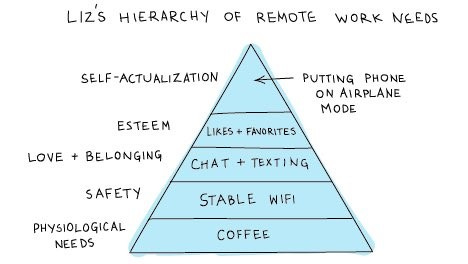GRANTED: The value of going outdoors, outside your expertise, and to the outsiders inside your team

March 2019
You don't always choose the emotions you feel, but you do get to choose which ones you express. Emotional intelligence depends on the will to recognize harmful emotions and the skill to avoid inflicting them on others.
But sometimes emotions that seem counterproductive can have hidden benefits. To kick off season 2 of my TED podcast WorkLife this Tuesday, we go to Pixar to explore how an Oscar-winning director harnessed dissatisfaction as creative fuel to make one of my favorite films. Sometimes disgruntled outsiders are your best source of fresh ideas: their frustration with problems opens up new solutions.
Speaking of fresh ideas...
1. You Spend 5% of Your Day Outside
In Finland, kids get 15 minutes of recess for every 45 minutes of class—and their test scores are among the highest in the world. Are you listening, America?
See also new evidence from Denmark that children who grow up near green spaces have a 55% lower risk of mental health disorders in adulthood.
2. The Hidden Benefits of Hiring Jacks and Jills of All Trades
A Jack or Jill of all trades is a master of at least one: leadership. Companies run by generalists innovate more than those run by specialists.
3. How to Create Belonging for Remote Workers
Maslow for digital nomads:

From My Desk:
4. The Surprising Value of Obvious Insights
The three most annoying sentences in organizational life:
(a) That’s not what my experience shows
(b) That’s the way we’ve always done it
(c) That will never work here
When people are resistant to change, I've learned that instead of pitching new ideas, it helps to lead with obvious ones. Once you validate some intuitions, you earn the legitimacy to challenge others. You don't have to say something new if you say something true.
5. Ignore Email at Your Own Risk
It's hard to be good at your job if you're bad at responding to legitimate messages. Email is not household clutter and you're not Marie Kondo. Ping!
Yes, your inbox is full of other people's priorities. But your priorities should include other people.
6. Power Doesn't Corrupt—It Just Exposes Who Leaders Really Are
"Power corrupts" lets powerful people off the hook. The way you use power reveals on the outside what was already inside.
The ultimate test of character is how you treat people who lack power.
Cheers,
Adam
Adam Grant, Ph.D.
Organizational psychologist at Wharton, author of ORIGINALS, GIVE AND TAKE, and OPTION B, and host of WorkLife, a TED original podcast



